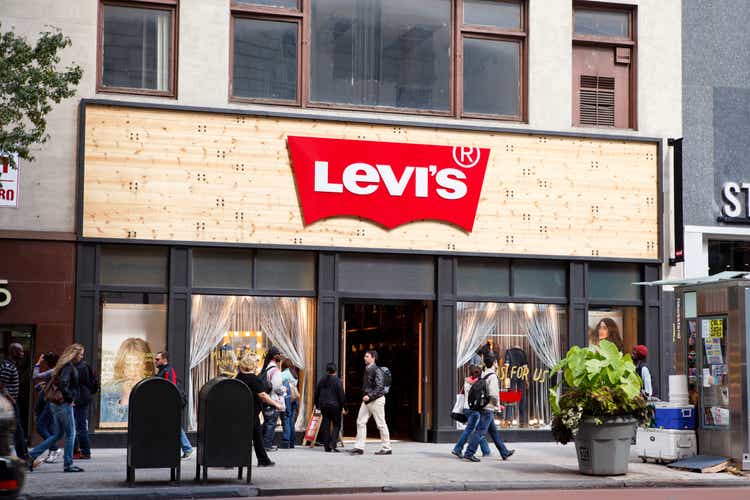wdstock/iStock Editorial via Getty Images
We've been following Levi Strauss (NYSE:LEVI) for a while looking for a good entry price, and we believe shares are getting close. While not as cheap as it got during the depths of the Covid
wdstock/iStock Editorial via Getty Images
We've been following Levi Strauss (NYSE:LEVI) for a while looking for a good entry price, and we believe shares are getting close. While not as cheap as it got during the depths of the Covid
Analyst’s Disclosure:I/we have no stock, option or similar derivative position in any of the companies mentioned, but may initiate a beneficial Long position through a purchase of the stock, or the purchase of call options or similar derivatives in LEVI over the next 72 hours. I wrote this article myself, and it expresses my own opinions. I am not receiving compensation for it (other than from Seeking Alpha). I have no business relationship with any company whose stock is mentioned in this article.
The information contained herein is for informational purposes only. Nothing in this article should be taken as a solicitation to purchase or sell securities. Before buying or selling shares, you should do your own research and reach your own conclusion, or consult a financial advisor. Investing includes risks, including loss of principal.
Seeking Alpha's Disclosure: Past performance is no guarantee of future results. No recommendation or advice is being given as to whether any investment is suitable for a particular investor. Any views or opinions expressed above may not reflect those of Seeking Alpha as a whole. Seeking Alpha is not a licensed securities dealer, broker or US investment adviser or investment bank. Our analysts are third party authors that include both professional investors and individual investors who may not be licensed or certified by any institute or regulatory body.